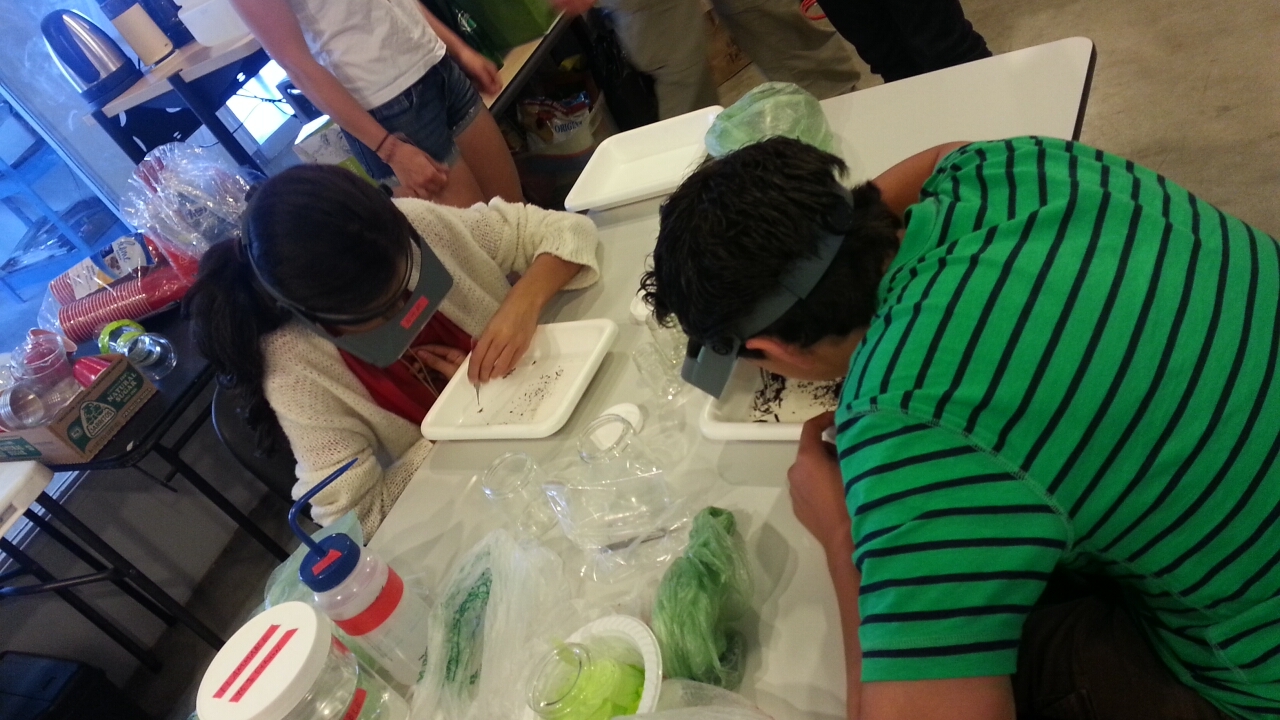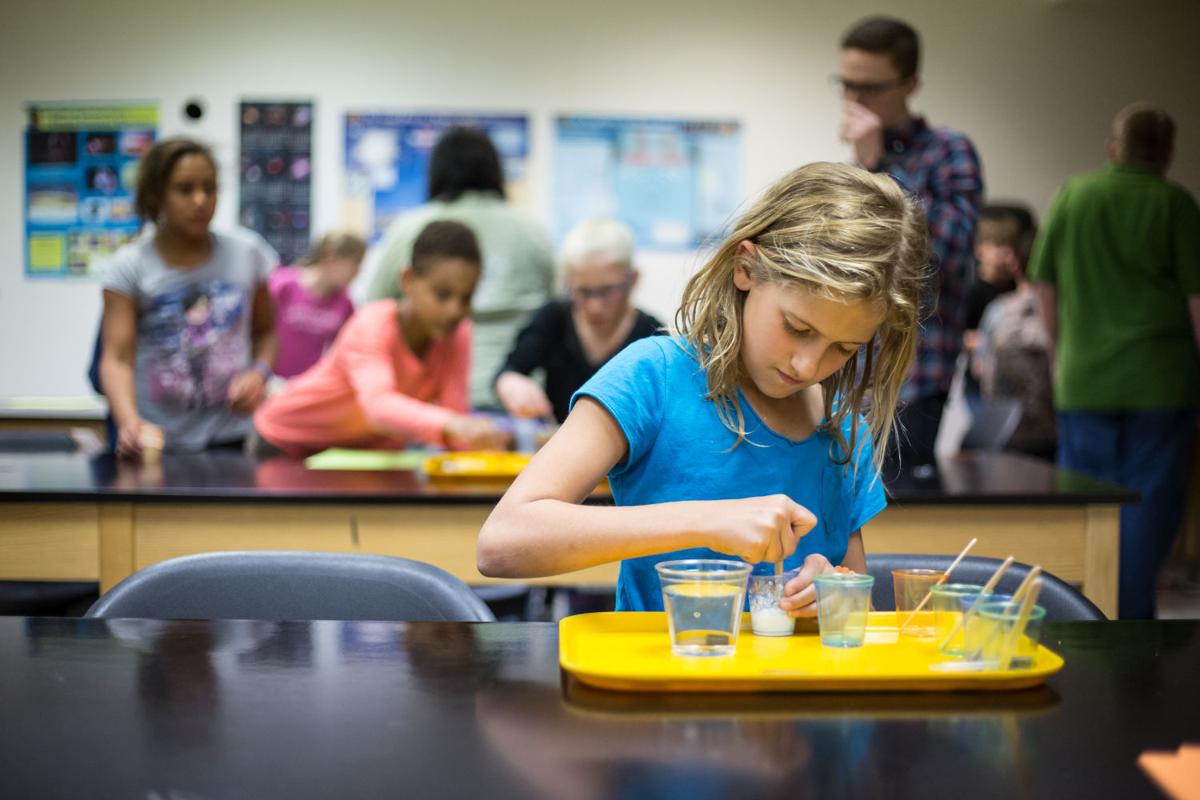Afterschool Science Programs
Every year, the After School Program (ASP) offers courses to New York City high school students interested in the sciences. There are courses in anthropology, astrophysics, earth science, genetics, biodiversity, and more. Each course makes use of the Museum's unique resources through hall visits, lab and collections tours, talks and lectures by scientists, and hands-on activities.ASP offers multiple sessions throughout the school year.

Change your Afterschool Program into a Sizzlin’ Science Laboratory and turn your students on to science!

Each session is six weeks long, and courses meet once or twice a week from 4:30 - 6:30 PM. Students may attend only one course per session. We accept students regardless of citizenship or immigration status. All After School Program Exploratory and Science Research courses are offered free of charge!
TYPES OF COURSES Within these content areas, we offer two types of courses, Exploratory and Science Research. To Learn more about any of the courses listed below please follow the link in the course title.
Click the link below for the 2017-18 Exploratory and Science Research Course Calendar. EXPLORATORY Exploratory AMNH courses allow students to engage their diverse interests through in-depth, “elective-style” coursework. Exploratory AMNH allows our scientists, educators and students the chance to explore science in unique and surprising ways. Any New York City high school student may take one or more exploratory courses throughout the school year.
After School Curriculum Kits
Session 4 - (2/26 - 4/19/18) - NEW COURSE! - NEW COURSE! SCIENCE RESEARCH Research AMNH courses are intensive 6-week courses that introduce students to the fundamentals behind the science practiced at the Museum. Courses cover a variety of topics including anthropology, astrophysics, conservation science, and evolutionary biology and focus on core scientific theories, concepts, and practices.
After School Science Program Ideas

Each Research AMNH course is co-taught by a Museum scientist and a Museum educator and are designed to prepare students for the possibility of conducting authentic scientific research through a partner program, the Science Research Mentoring Program (SRMP). Please note that completion of three Research AMNH courses is a requirement for SRMP, but that completion of prerequisites does not guarantee acceptance into SRMP. Science Research courses are open to students in 10-12th grade (public, private, and homeschool). Life Science Tracks: Session 4 - (2/26 - 4/19/18) Physical Science Tracks: Session 4 - (2/26 - 4/19/18) CREDITS Support for Youth Initiatives is provided by The Peter and Carmen Lucia Buck Foundation.
Upcoming Offerings. How do you make objects in outer space, objects that no human has ever visited, easier to understand on a more intuitive level? Science Visualizations! Free ares download full version. The Open Space project is a brand-new planetarium software being developed by the Natural History Museum that is pushing the boundaries of visualizing outer space. This class will use Open Space and other Science Visualizations to help understand some of the amazing objects in our solar system such as Mars, Pluto, Comets, Asteroids, the Sun, and our own Earth. Activities will include defining what separates a cutting-edge science visualization from other methods of communicating science, understanding how scientists gather data from different missions in outer space, and examining how these tools help scientists discover new and exciting properties of these mysterious worlds.
February 26, 2018 - April 18, 2018. Cosmology is the study of the Universe as a whole – what it is, what's in it, how it came to be, and what the ultimate fate of it is. Today, Cosmologists study things like the Big Bang, Dark Energy, and the shape of the Universe. There are also cosmologies from other cultures and parts of the world, which describe the heavens in relation to their view of the cosmos.
After School Science Programs
In this class, you'll learn about both aspects of cosmology – see how different cultures represent their cosmologies through exhibits from around the Museum, and learn about how scientists study the Universe and what we have learned (and what we don't know!). January 5, 2018 - February 9, 2018. In this course, students will learn about marine invertebrates and biodiversity through the field research and scientific expertise of scientists working at the Museum. The course will cover marine ecosystems as well the major groups of marine life and their evolutionary relationships. Class activities will include dissections, observing marine specimens through microscopy, exploring marine life displays in Museum halls, cladistics and the study of evolution, as well as meeting with scientists. November 3, 2017 - December 15, 2017.